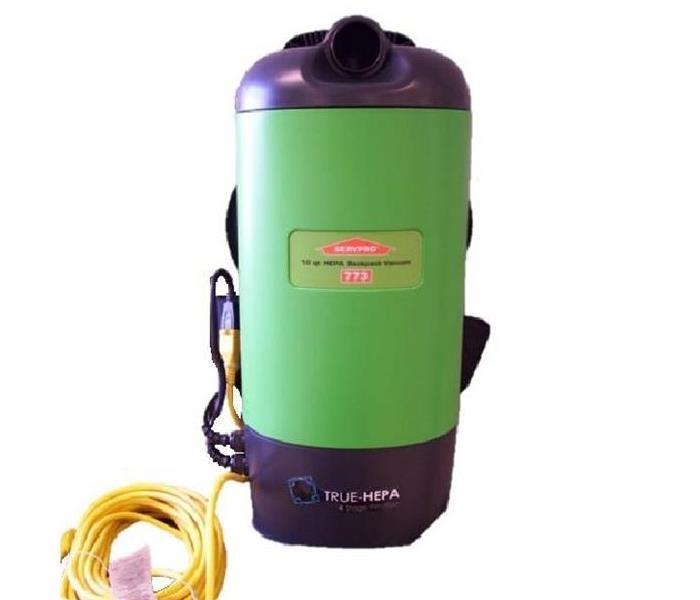What is HEPA and why is it important?
5/13/2016 (Permalink)
You have probably heard the term HEPA in commercials for vacuums, but what does it mean? The definition of HEPA stands for high-efficiency particulate air.
What that means is that air that is passed through a HEPA filter will have 99.7% of particles in the air that are .3 microns or larger. To help put that in perspective the diameter of a human hair is between 50 and 75 microns. So as you can see a HEPA filter is capable of removing very small, invisible to the naked eye, particles from the air. Those particles could include but are not limited to dust, pollen, mold spores, soot or ash.
HEPA Vacuums
HEPA Vacumms are used in applications where critical HEPA filtration is required such as asbestos, lead or mold mitigation and cleanup.
Air Scrubber
Air scrubbers are disigned for restoration, abatement, and remediation. Used for cleaning and controlling air quailty and creating nagative pressure in a work area.
How it works: air enters the unit and passes through three- stage filtration captureing smoke, fumes, mold spores, dust and particulates. Cleans air is returned to the enviorment. When large areas are to be cleaned, multiple units can be strategically placed for optium cleaning.
Using a HEPA filtered air scrubber or vacuum can help remove these small particles from the air leaving the air we breathe cleaner and remove odors.






 24/7 Emergency Service
24/7 Emergency Service
